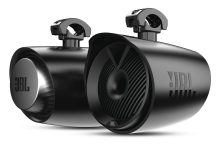When the bite is as hot as the weather, it’s easy to forget the essentials. I was pre-fishing Roosevelt Lake one summer and we’d been catching fish all day long.
It was over a hundred degrees in the shade, but there’s no shade on a bass boat! Trudging up the steep ramp toward the truck at the end of the day, I was suddenly dizzy and nauseous.
I actually had to sit down on the hot dirt and wait for the world to quit spinning. I had heat exhaustion.
Turns out I was lucky. A bit longer in the sun with no water and I could have died.
You absolutely MUST keep yourself hydrated in summer. This means drinking lots of water all day long, even if you don’t feel thirsty.
By the time you feel thirsty, you’re already on the way to trouble. Loose cotton clothing will help keep you cool, and you should wear a hat and long sleeves.
Cover up those legs, too. Shorts might feel cooler, but skin cancer is no fun. Sunscreen should be applied liberally, and re-applied every couple of hours.
If the weather is dry and hot, it helps to dip your hat in the water once in a while. The evaporation will cool you off.
Hot, humid weather is the worst, and you really need to be on your guard on muggy days. Do whatever you can to cool yourself off and make sure you drink plenty of water all day long.
If you are putting fish in the livewell, run the pumps continuously. The fish need plenty of oxygen, and the warmer the water is, the less it holds.
If you are weighing fish in, and the tournament officials don’t provide aerated tanks for those in line, then leave the fish in your livewell until the line goes down.
They’ll use up all the oxygen in that bag of water in a matter of minutes and be in trouble shortly.
Jim Warneke, a fisheries biologist with the Arizona Game and Fish Department, says that when you bring a bass up quickly from over 45 feet, you can’t decompress him no matter what you do. The air in the fish’s bloodstream and organs expands and causes hemorrhages.
The swim bladder squashes other organs. At 33 feet, the pressure is an entire additional atmosphere.
This means that the air takes up half the space it would at the surface. Bringing up the fish causes this expansion.
Warneke suggests that if you catch a deep fish from less than 45 feet, you lower it back down in a milk crate. He ties a rope to the bottom of the crate, with the open side down.
He puts the fish in the water, lowers the crate over the fish, then lets the crate go back down to deep water. The fish will swim out once it gets down there.
After 45 feet, though, he says just keep the fish and eat it. It’s dead anyway.































